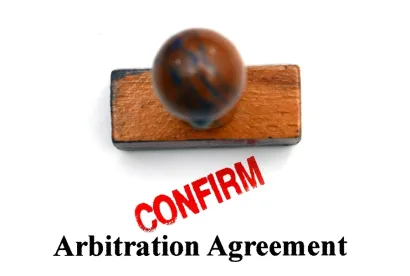Many employers require employees to sign arbitration agreements at the inception of the employment relationship and prior to any disputes, such as part of their new hire packets or as a condition of their employment. Recently, Congressional Democrats have introduced legislation to invalidate such pre-dispute arbitration agreements.
On March 7, 2017, Senator Al Franken (D-MN) introduced The Arbitration Fairness Act of 2017 (S.537) (“Act”) into the U.S. Senate. If enacted, the Act would weaken the effectiveness of arbitration agreements in the employment context. A House counterpart was also introduced on March 7, 2017 by Representative Hank Johnson (D-GA), and the text is available here.
History: The Federal Arbitration Act & Supreme Court’s Favorable Treatment of Arbitration Agreements
In 1925, Congress passed the Federal Arbitration Act (“FAA”), which provided the legislative framework for the enforcement of arbitration agreements in the United States. The FAA was intended to ensure that such agreements were “valid, irrevocable, and enforceable, save upon such grounds as exist at law or in equity for the revocation of any contract.” (9 U.S.C.S. § 2).
Initially, the U.S. Supreme Court was suspect of arbitration agreements. (See, e.g., Bernhardt v. Polygraphic Co. of Am., 350 U.S. 198, 203 (1956) (“Arbitration carries no right to trial by jury… [a]rbitrators do not have the benefit of judicial instruction on the law [and] need not give their reasons for their results; the record of their proceedings is not as complete as it is in a court trial; and judicial review of an award is more limited than judicial review of a trial”). Thirty years later, tides changed and the Supreme Court declared that Congress’s essential purpose in enacting the FAA was to overcome the “old [judicial] hostility toward arbitration.” (Southland Corp. v. Keating, 465 U.S. 1, 14 (1984)). The Court has since issued multiple decisions implementing a broad “national policy favoring arbitration” that requires courts to enforce arbitration agreements, while limiting judicial interference with the arbitral process. (Id. at 10). Indeed, subsequent caselaw has clarified that the FAA has a broad mandate to enforce arbitration agreements, and states cannot pass laws inconsistent with that mandate. (AT&T Mobility LLC v. Concepcion, 131 S. Ct. 1740, 1753 (2011)).
Arguments For and Against Arbitration Agreements
Like in Bernhardt, opponents of arbitration frequently claim that it lacks the procedural processes to allow plaintiffs to prove their case; it does not allow for judicial review, lacks meaningful transparency, and impairs the development of important federal laws; and is plagued by “repeat-player bias.”
Proponents of arbitration, on the other hand, argue that arbitration is faster, cheaper, and, unlike court, may be kept confidential. In addition, the parties may choose their arbitrator; may choose to proceed with limited discovery or the full extent of discovery, and there is generally more finality to an arbitration award as such awards have a limited appeal process.
New Legislation Seeks To Limit Pre-dispute Arbitration Agreements
The Arbitration Fairness Act of 2017 states that the FAA was not intended to apply in the employment context, and seeks to amend the FAA by adding a new chapter that invalidates agreements that require the arbitration of employment disputes made before the dispute arises. Specifically, the Act states that “no pre-dispute arbitration agreement shall be valid or enforceable if it requires arbitration of an employment dispute…” In addition, a court would determine arbitrability, even if the agreement states otherwise. Arbitration agreements between an employer and a labor union, or between labor unions, however, would remain in effect. The Act would take effect upon enactment and apply to all disputes on or after the enactment date.
What the Act Means for Employers
If enacted, the Act does not ban arbitration. Instead, it limits the enforcement of arbitration agreements that were entered into prior to any dispute arising between the parties, such as agreements signed at the time of hire or when new policies are rolled out. Once a dispute arises, the parties may then decide whether to enter into arbitration, and proceed to arbitration if they see fit. Thus, employers would have to create a procedure to obtain post-dispute arbitration agreements. In practicality, this may prove very difficult as an aggrieved employee is likely to be suspect of their employer and may not sign any agreement the employer proposes. If the employee hires a lawyer, that lawyer will likely want to go to court and seek attorneys’ fees.
The good news is that prior efforts to enact similar revisions to the Act have failed, and with Republicans controlling the House and Senate, the Act is likely not going to succeed as a stand-alone bill. Democrats have been successful restricting arbitration through other means, such as the Department of Labor’s recent blacklisting rule and the Franken Amendment for Department of Defense contractors, which was passed as part of the Congressional appropriations process. Regardless, since any pre-dispute arbitration agreements signed prior to the enactment of the Act would be valid, employers should: (1) consider utilizing arbitration agreements; (2) review and update any existing arbitration agreements to ensure they are valid; and (3) obtain as many signed agreements as possible.
Conclusion
If the Arbitration Fairness Act of 2017 passes, employers with arbitration agreements throughout the nation will likely be impacted.


 />i
/>i
